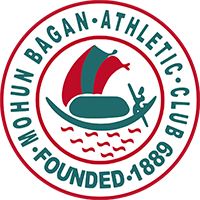
Bengaluru, December 27: The last time the AFC Asian Cup was played in the United Arab Emirates, Saudi Arabia arrived in Abu Dhabi with their chances being written off.
A disappointing Gulf Cup performance saw head coach Ze Mario replaced with Nelo Vingada as expectations plummeted. Three weeks later, the trophy was heading back to Riyadh.
Saudi Arabia may have only been playing in their fourth AFC Asian Cup, but already they had made the tournament their own; title wins in 1984 and 1988 and a run to the final in 1992, when they lost narrowly to hosts Japan, ensured the Saudis were the dominant force in Asian football as the AFC Asian Cup was about to kick off in the United Arab Emirates.
#OnThisDay: Saudi Arabia won maiden AFC Asian Cup title in 1984 after defeating China PR 2-0 at the National Stadium, Singapore! pic.twitter.com/RvjPOnINZQ
— #AsianCup2019 (@afcasiancup) December 16, 2018
While Saudi Arabia retained a fearsome reputation off the back of their impressive performances at the FIFA World Cup in the United States two years earlier, there had been changes aplenty.
Only nine players remained from the squad that reached the round-of-16 in 1994 while the draw had pitted them against a resurgent Iran, a talented Iraq and Thailand, the kings of Southeast Asia.
"We hadn't done a really good job in Oman in the Gulf Cup," Sami Al Jaber, who had been a member of the FIFA World Cup squad and remained in the line-up for the 1996 AFC Asian Cup, told AFC website.
"After the World Cup in 1994, 50 or 60 per cent of the players had changed and for the young players the Gulf Cup wasn't a very good tournament.
"But what happened was we went there without pressure. The young players were talented, but they were maybe a little careless under pressure. They went there with three, four, five experienced players but that was it. But we had a very strong group stage and things went well from there," Al Jaber added.
A 6-0 defeat of the Thais in their opening game in Dubai dispelled any doubts and a 1-0 win over Iraq ensured the Saudis would qualify for the quarterfinals even before their 0-3 loss against Iran in the final group game.
That set up an epic last-eight encounter with China -- a game which Saudi won 4-3 -- and is still being rated as one of the greatest in the history of the AFC Asian Cup.
"We were, after 20 minutes, 0-2 down and that game is unforgettable. The second half we totally controlled and we ended up winning 4-3," recalled Al Jaber.
That set up a rematch with Iran in the semifinals -- a game the Saudis won on penalties -- to leave them facing hosts UAE in the final.
"At that time, this was one of the best teams ever in the history of UAE. We played penalties against UAE and did the job," Al Jaber added.
For the third time in four tournaments, the trophy was heading back to Riyadh.
#OnThisDay in 1996, Saudi Arabia won their third AFC Asian Cup title over 1996 hosts UAE on penalties! pic.twitter.com/NxE3HFylzx
— #AsianCup2019 (@afcasiancup) December 21, 2018
But the significance of that win -- a record equaling third for the country -- went further than the 1996 AFC Asian Cup, believes Al Jaber.
"It wasn't easy. We won the AFC Asian Cup and we came back and it was very good for that generation to feel like champions, to go with a different spirit in the qualification games.
Most of them at that time, 80 per cent of the players or 70 percent, hadn't played at the World Cup at that time. Winning the Asian Cup changed everything," Al Jaber concluded.
In the 2019 AFC Asian Cup, Saudi is drawn in Group E along with Qatar, Lebanon and North Korea.
The Green Falcons begin their campaign on January 8 against Korea at the Rashid Stadium in Dubai.
(Source AFC Media)


 Click it and Unblock the Notifications
Click it and Unblock the Notifications

























